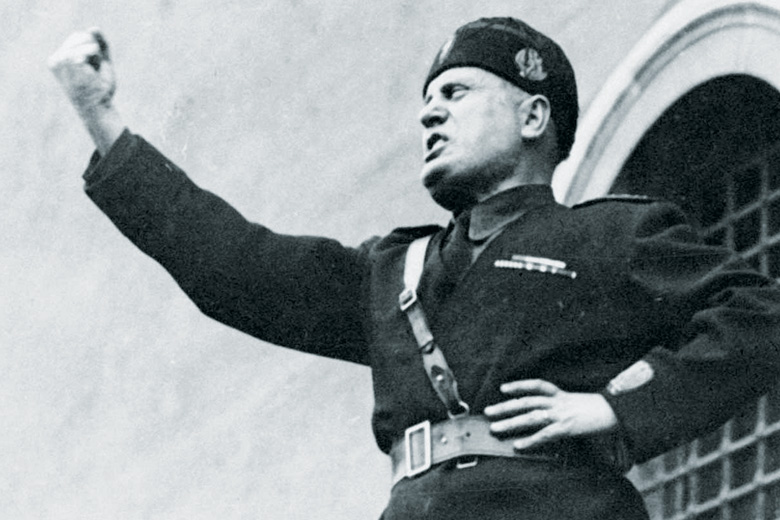Enzo Bonaventura: A Pioneering Mind in Psychology
Early Life and Education
Enzo Bonaventura stands as a multifaceted figure in the realm of psychology, etched in history for his significant contributions to the understanding of human cognition and behavior. Born on March 27, 1891, in Pisa, Italy, he was the youngest child in a family that valued education highly. From a young age, Bonaventura exhibited profound inquisitiveness and a natural inclination towards the sciences, a path that would eventually lead him to become an influential figure in psychology.
His academic journey began at the University of Pisa, where he initially enrolled in a philosophy program. It was here that his interest in the human mind began to take considerable shape. While studying philosophy, Bonaventura became fascinated by the emerging field of psychology—a discipline that at the time was just starting to establish itself as a distinct scientific inquiry. He quickly gravitated towards this field, attracted by its promise to unravel the intricacies of human thought processes and behaviors.
Upon completing his undergraduate degree, Bonaventura decided to pursue psychology more rigorously. He transitioned to the University of Berlin, a leading hub for psychological research in the early 20th century. Under the tutelage of prominent psychologists such as Carl Stumpf, Bonaventura delved deep into experimental psychology. His education in Berlin was transformative, providing him with a strong foundation in empirical research methods, which would play a crucial role throughout his career.
A Career in Psychology
Bonaventura's professional journey began in academia as a lecturer at the University of Florence. His lectures and seminars quickly gained attention, not only for their content but also for his engaging style and ability to inspire students. He thrived in the academic environment, where he had the freedom to explore his ideas. His work during this period primarily focused on sensory perception and cognitive functions, areas that were still emerging in psychological research.
Around this time, the impact of German experimental psychology was profoundly felt, and Bonaventura was at the forefront of integrating these scientific methodologies into Italian psychology. His approach was characterized by a meticulous attention to detail and a commitment to rigorous empirical research. Bonaventura's investigations often involved innovative experiments designed to probe the depths of human perception and thought.
As his reputation grew, Bonaventura was invited to hold prominent positions in various universities, which allowed him to further his research. His contributions during this period were pivotal in bridging the gap between philosophical psychology and the experimental approach, effectively laying the groundwork for modern psychological research in Italy. Bonaventura's influence extended beyond his direct research contributions; he was instrumental in training the next generation of psychologists, many of whom went on to make their own significant contributions to the field.
Contributions to Psychological Science
Enzo Bonaventura's research spanned several domains within psychology, but he is perhaps best known for his pioneering work in cognitive psychology, a branch of psychology that explores mental processes such as perception, memory, and problem-solving. One of his notable contributions was the study of sensory perception and its impact on cognitive functions. His experiments in this area were groundbreaking, as they helped to clarify the complex interplay between sensory input and cognitive processing.
Bonaventura's work was characterized by a unique blend of theoretical depth and empirical precision. He was particularly interested in how humans perceive and interpret sensory information from their environment. His studies on visual perception, for instance, provided new insights into how the human brain reconstructs three-dimensional objects from two-dimensional retinal images.
Moreover, Bonaventura was deeply interested in the functioning of memory and its mechanisms. He conducted several experiments to examine how memories are formed, retained, and recalled. His findings were instrumental in shaping our contemporary understanding of memory as not merely a passive repository of information but as an active process involving dynamic reconstruction.
Another area where Bonaventura left a lasting legacy was in educational psychology. He was keenly aware of the implications of psychological research on teaching and learning. Through his work, he sought to apply psychological principles to optimize educational methods and curricula. By rigorously testing different approaches, he advocated for educational strategies that were aligned with students' cognitive development, thus enhancing learning outcomes.
Bonaventura's contributions went beyond research, impacting the structure and direction of psychological inquiry in Italy. His work helped establish psychology as a recognized and respected scientific discipline, paving the way for future scholars.
Impact on Educational Psychology and Teaching Methodologies
Beyond his work in cognitive psychology, Enzo Bonaventura was a pivotal figure in educational psychology, applying his deep understanding of human cognition to redefine teaching methodologies. He believed that education should be tailored to fit the cognitive development of students, which was a forward-thinking perspective during his time. Bonaventura was among the early advocates for using psychological insights to shape educational practices, a concept that is commonplace today but was groundbreaking in the early 20th century.
Bonaventura's research focused heavily on understanding how children learn and process information differently compared to adults. He emphasized that learning should be an active process that engages students rather than a passive one in which they merely receive information. This perspective was revolutionary, as traditional education methods at the time were heavily reliant on rote memorization and passive absorption of knowledge.
He posited that educational techniques should not only impart knowledge but also develop students' critical thinking and problem-solving skills. He advocated for curricula that encouraged exploration and creativity, believing these were critical in fostering a deeper understanding and retention of knowledge. Bonaventura's ideas laid the groundwork for modern pedagogical practices such as active learning and student-centered teaching.
One of his significant contributions in this field was the development of assessment tools that measured not just what students learned, but how they learned. By focusing on the processes of learning, Bonaventura's methods allowed teachers to adapt their instruction to better suit the individual needs of students, promoting a more personalized approach to education.
Cultural and Social Advocacy
In addition to his scientific work, Bonaventura was deeply invested in cultural and social advocacy. He was a strong proponent of using psychological insights to enhance societal well-being, believing that understanding human behavior was crucial in addressing social issues. His efforts extended beyond academia into broader cultural dialogues, where he sought to integrate psychological principles into everyday social practices.
Bonaventura was particularly interested in how societal structures could be informed by psychological understanding to promote healthier, more equitable communities. He championed causes related to mental health awareness, recognizing the importance of psychological well-being in the overall quality of life. His advocacy work often highlighted the necessity of providing adequate mental health resources and education to the public, promoting the idea that mental health care should be accessible to all.
Through public lectures and writings, Bonaventura disseminated his ideas to a wider audience, encouraging public discourse around the psychological aspects of social policies. He was a regular contributor to journals and magazines, where he discussed how the findings from psychological research could be applied practically to improve social systems and relationships. His ability to communicate complex ideas in a relatable manner earned him respect and recognition beyond the academic and scientific communities.
Challenges and Controversies
Bonaventura's career was not without its challenges and controversies. The early 20th century was a turbulent time, politically and socially, and these dynamics inevitably intersected with his work. While he made significant contributions to psychology, some of his ideas were met with skepticism and resistance, especially when they challenged established norms.
One major challenge he faced was the integration of new psychological theories into traditional educational systems. His ideas were initially controversial because they clashed with the entrenched pedagogical methods of the time. Many educators and policymakers were hesitant to adopt new approaches that required a shift in teaching styles and curricula development. Bonaventura’s advocacy for more holistic and student-centered approaches to education was often met with debate, reflecting the tension between innovation and tradition.
Additionally, the socio-political climate of the era also posed significant challenges. As the world grappled with events such as the Great Depression and the rise of totalitarian regimes, academic freedom was at times constrained, affecting the dissemination of Bonaventura's work. Despite these challenges, he persisted in his efforts, using both formal and informal platforms to promote his research and ideas.
Unfortunately, Bonaventura's career was cut short by the political upheaval of World War II. As a Jewish academic, he faced persecution under fascist regimes, which not only posed personal threats but also hindered his ability to continue his scholarly work. Despite these adversities, his scientific rigor and commitment to improving human understanding remained unshaken, and his legacy continued to inspire future scholars and practitioners in the field of psychology.
Rediscovering Bonaventura's Legacy
In the decades following his untimely death, Enzo Bonaventura's work experienced periods of neglect, largely due to the chaotic and oppressive environments he had to navigate during the latter stages of his life. His contributions, however, did not remain forgotten for long. The resurgence of interest in historical psychological research led scholars to rediscover Bonaventura's extensive contributions to the field.
Researchers and historians have since worked diligently to bring attention back to his pioneering efforts in psychology, particularly his interdisciplinary methods that combined scientific inquiry with philosophical thinking. Bonaventura's blending of empirical research with philosophical breadth provided a holistic approach to understanding the human mind, making him a key figure in bridging various schools of thought within psychology.
An important aspect of reinvigorating interest in his work has been the digitization and publication of his research papers and writings. Modern scholars have taken a keen interest in Bonaventura's manuscripts, finding them rich with ideas that prefigured contemporary psychological trends. This re-examination has highlighted not only his scientific achievements but also his insightful perspectives on the intersection of psychology with social and cultural issues.
Moreover, Bonaventura's work has come to be appreciated in discussions around the development of psychological education. His early advocacy for student-centered learning and the application of cognitive psychology principles in teaching has been acknowledged as precursory to educational reforms that gained momentum in later decades. As educators seek more effective ways to engage students, Bonaventura's work serves as a reminder of the enduring relevance of tailoring educational practices to psychological insights.
The Lasting Influence of Bonaventura's Ideas
Today, Enzo Bonaventura's legacy lives on in various spheres of psychology and education. His comprehensive approach to understanding the mind has influenced many areas of psychological research, from cognitive and educational psychology to social and cultural studies. The breadth of his work and his innovative methodologies continue to inspire researchers who strive to integrate multiple perspectives in their investigations of human behavior.
In educational settings, Bonaventura's ideas on instructional design and student engagement are experiencing renewed interest among educators seeking to create more dynamic and effective learning environments. His emphasis on critical thinking and problem-solving as core components of education aligns closely with modern pedagogical goals focused on preparing students for complex real-world challenges.
Beyond academia, Bonaventura’s advocacy for mental health awareness has also found new relevance in today's global conversations about psychological well-being. His belief in the importance of accessible mental health resources resonates strongly in contemporary discussions, underscoring the need for inclusive health policies that account for the diverse psychological needs of society.
His life and career also serve as a poignant reminder of the importance of resilience and advocacy in the face of adversity. Bonaventura's dedication to his work, despite the political and social challenges he encountered, exemplifies the enduring impact of scholarly passion and the power of scientific inquiry to transcend the limitations imposed by societal conditions.
Concluding Reflections
Enzo Bonaventura's contributions to the field of psychology and his forward-thinking perspectives on education remain influential pillars that continue to shape modern understandings of the human mind and learning processes. His pioneering work across different psychological disciplines set the stage for numerous advances in human knowledge, despite the considerable obstacles he faced during his lifetime.
As we commemorate his extraordinary legacy, Bonaventura's story serves not only as a testament to his profound insights and scholarly achievements but also as an inspiration for current and future generations of psychologists and educators. His life encapsulates the quest for knowledge amidst adversity and the impact one dedicated individual can have on the broader pursuit of scientific and educational progress.
Enzo Bonaventura's name may not be the most immediately recognized within the annals of psychology, but his lasting contributions and the contemporary relevance of his ideas affirm his status as a pioneering figure whose work continues to resonate across disciplines. As the field of psychology evolves, the enduring richness of Bonaventura's insights will undoubtedly continue to inform and inspire diverse areas of inquiry, reflecting a legacy that is both storied and very much alive.



















Comments